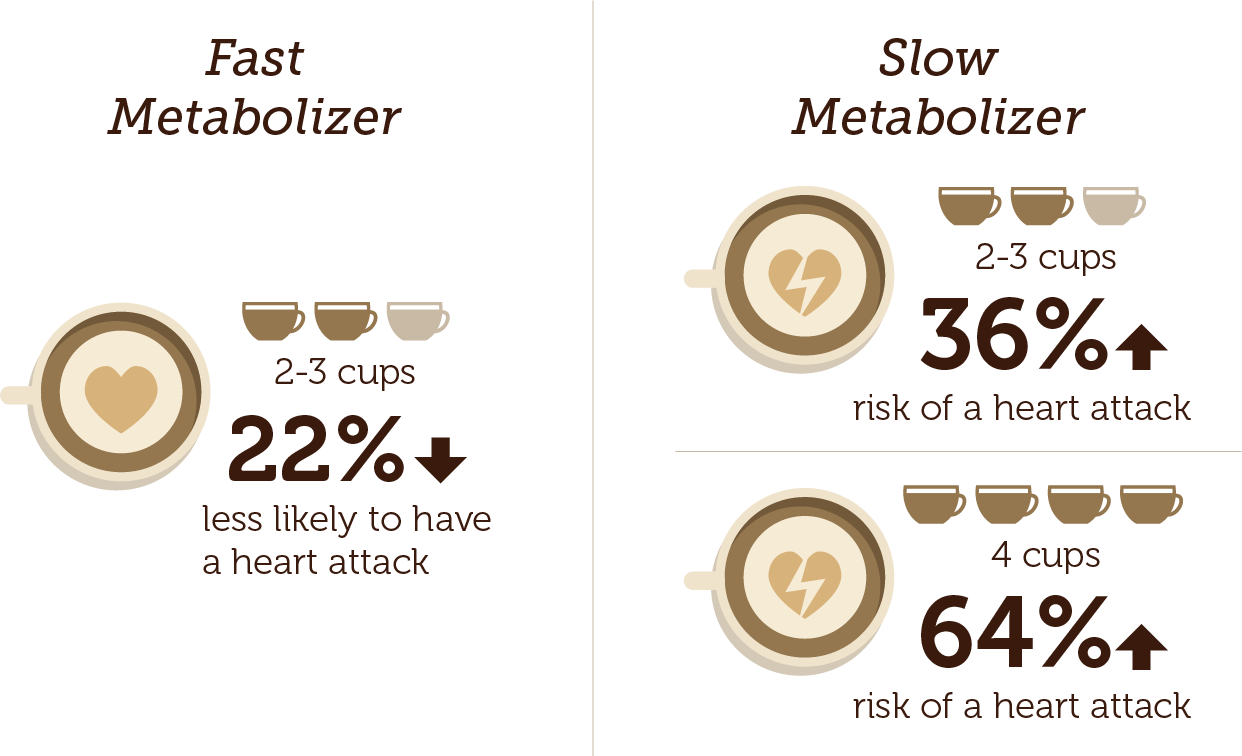Detailed Description
Not all of us are equally affected by caffeine. Caffeine sensitivity depends on how long it stays around in our bodies. Some of us are “fast” caffeine metabolizers and clear caffeine much faster, while “slow” metabolizers take longer to clear it from their body.
The longer caffeine stays in the circulation, the higher the risk of a heart attack or high blood pressure (hypertension). By drinking more than 3 cups of coffee per day a slow metabolizer may be increasing their risk of
• a heart attack by 2- to 4-fold
• hypertension by 3-fold
Take this simple genetic analysis to determine if caffeine consumption may be harming your health.


